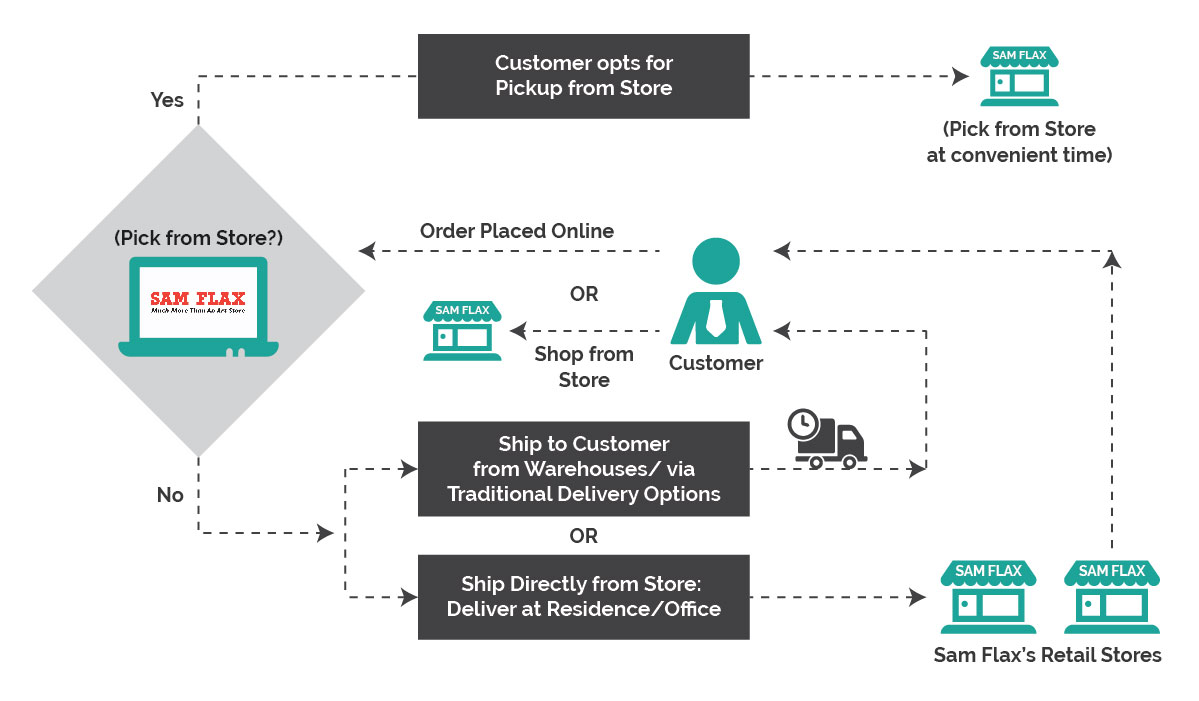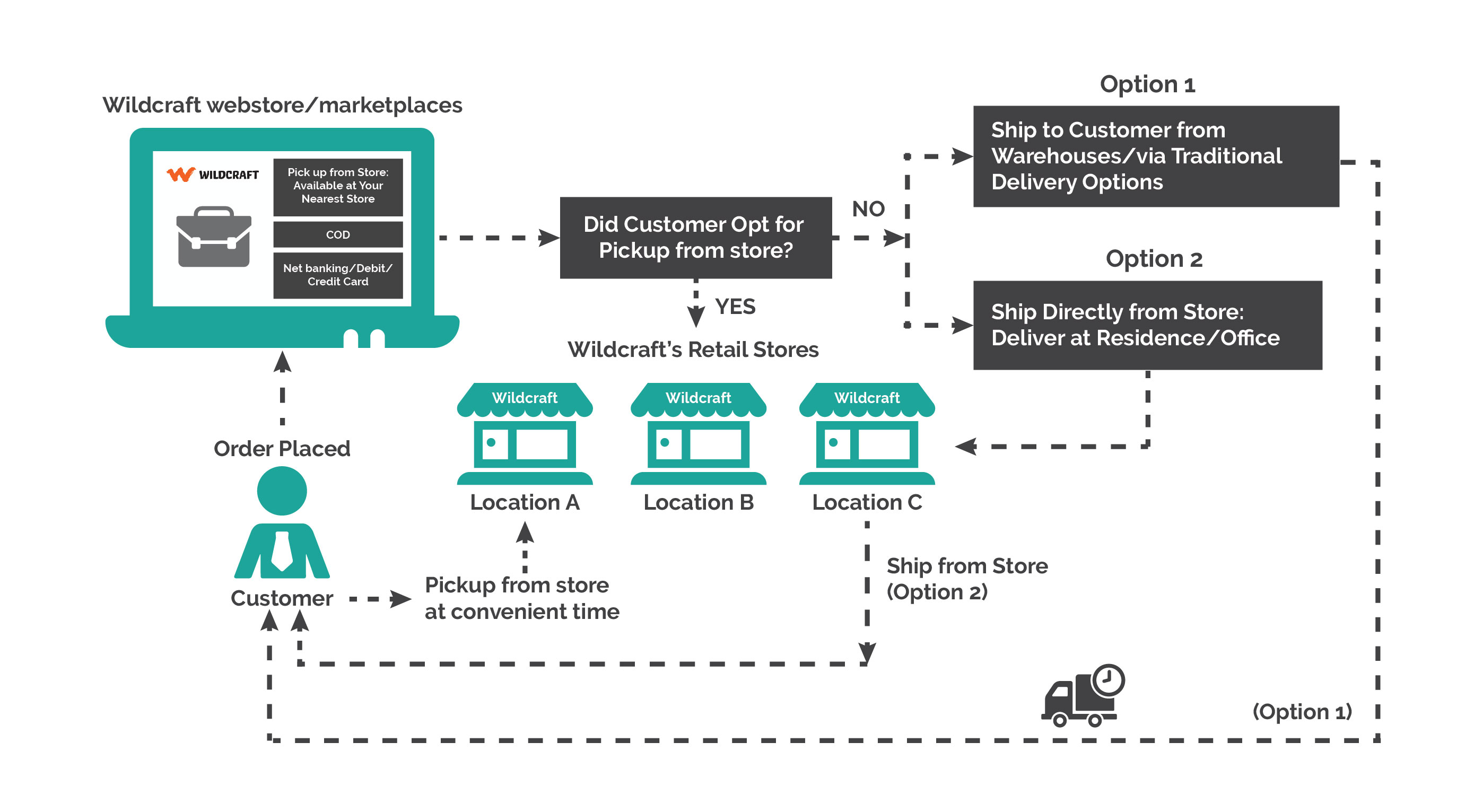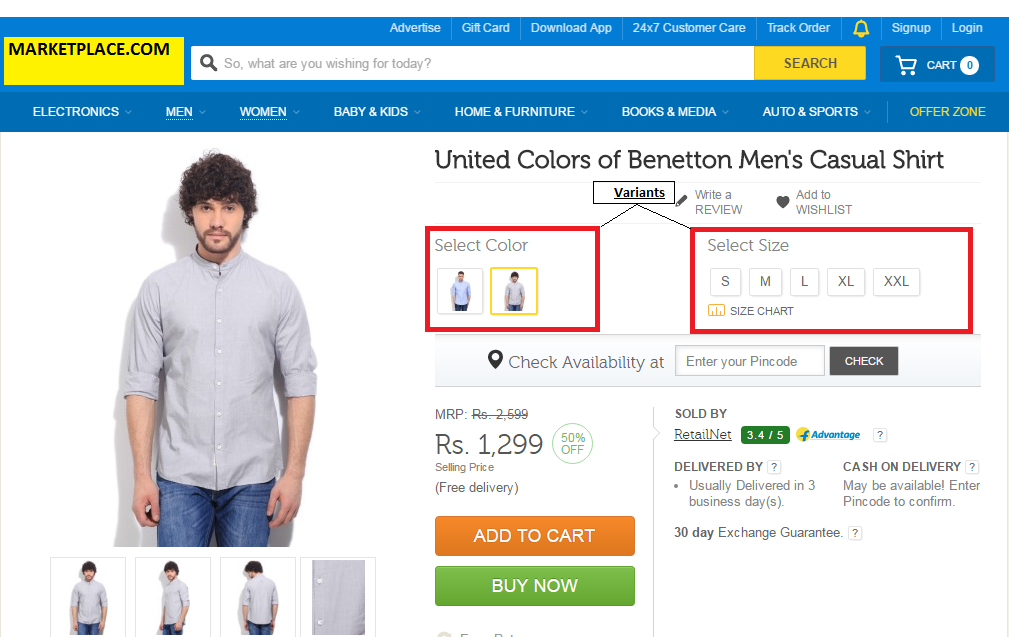StyleTAG collaborates with Vinculum to turbocharge their online business
All about StyleTAG:
StyleTAG is India’s first online curated fashion and lifestyle destination. The shopping website hosts flash sales with curated styles for a limited period at up to 70% off. The product portfolio of the online retailer encompasses a range of affordable luxury products such as apparel, bags, shoes, home décor, toiletries and accessories such as scarves, watches, snoods, etc.
Key Challenges:
One of India’s leading curated fashion stores, StyleTAG required an eCommerce solution that would allow it to overcome challenges it faced in order fulfillment and increase its operational efficiencies.
They required a solution that –
- Provided a strong catalogue system to deal with the large volume of 500+ SKUs.
- Delivered Real-time visibility of inventory across the different
- Improved efficiency of their procurement management and order management processes.
- Delivered reports for all transactions
The Vinculum Solution:
Our one-stop solution automated the online retailer’s order management and warehouse management processes.
It delivered the following –
- Seamless Integrations with front-end eCommerce platform – Ruby on Rails
- Increased the shipments per day from 100-150 shipments/day to 400-500 shipments/day
- Reduced turnaround time with automated processes
- Assignment of orders to multiple warehouses resulted in removing redundancies in order processing
The implementation of our solution meant that they could save on costs and resources reduce manual processes – and improve their order and inventory management.
What lies ahead?
Recently, the online retailer has raised 50 crores in angel funding from Embassy Group.
Going forward, the fashion store intends to use the raised funds to further expand their range of private labels, acquire a medley of other designer brands and strengthen its team to complement their capabilities.
We continue to work with them to help them grow, and scale new heights.
Read the complete story of how we helped StyleTAG here.
Any tips or questions for us? Leave them in the comments below –
Read More
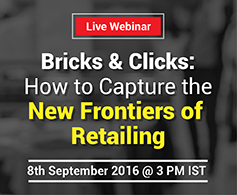
ETRetail and Vinculum Webinar: Bricks & Clicks and How to Capture New Frontiers of Retailing
Today’s shoppers are always connected. They want to browse online, research offline, touch and feel the merchandise in the store, get the purchase delivered home, picked up from a store/nearby location, or reserved at a location of their choice.
The challenge for Online and Offline retailers today is to create a compelling shopper experience across channels.
In order to address the rising customer needs for an Omnichannel shopping experience, online brands are going offline, and offline brands are branching into eCommerce.
This Offline – Online – Offline continuum throws up multiple collaboration opportunities for the entire ecosystem.
Vinculum is partnering with ETRetail to talk opportunities for Online and Offline retailers in a webinar on Thursday, September 8, from 03:00 PM to 04:30 PM IST. The webinar will offer expert advice from Venkat Nott, CEO, Vinculum Solutions, Raviraj Rodrigues, Supply Chain Head, Wildcraft, and Niket Anand, Associate Director of Product Management at Tolexo.
Panelists will examine key trends in the industry, and offer strategic insights into how Retailers and eTailers can leverage technology to enable their Omnichannel/Online-offline initiatives.
8th September 2016
03:00 pm – 04:30 pm IST
Key Takeaways:
- O2O transformation: How to get the best of both Online & Offline worlds
- State of the Industry & Key Trends
- Case studies: Strategic Online-Offline & Omnichannel initiatives
- Challenges in the existing IT landscape & ideas to overcome them
- Offline-Online-Offline Continuum: Is it a strategic fit for your business?
For further details, contact us at [email protected]
Read MoreLazada partners with Vinculum to power their growth story
All about Lazada:
Launched in 2012, Lazada is Southeast Asia’s largest eCommerce company.
It currently operates shopping websites in Indonesia, Malaysia, the Philippines, Singapore, Thailand and Vietnam. The marketplace had 8 million customers and 30,500 active sellers as of September 2015.
The company began by selling inventory to customers from its own warehouses but now also runs marketplaces for third-party sellers, as well as using its own logistics networks to deliver goods to consumers.
Lazada partnered with Vinculum to overcome the obstacles like Seller management, Order management, inventory management, price management and last-mile fulfillment.
Key Challenges:
With hundreds of thousands of products across categories including health and beauty, home and living, fashion, consumer electronics and home appliances among others, Lazada is a one-stop shopping destination.
As South East Asia’s leading online marketplace, Lazada required an eCommerce solution that would allow it to manage its seller base and support customer needs.
They required a solution that –
- Streamlined their seller onboarding processes, to manage inventory and prices.
- Integrated, their various systems. Additionally, they required an end to end solution that would support multiple languages and currencies, since they serve 6 different markets.
- Automated their business processes to enable an efficient and seamless fulfillment cycle of online orders and manage their inventory efficiently.
The Vinculum Solution:
This one-stop solution enabled automated fulfillment of orders from marketplaces and web store.
It delivered the following –
- Faster Seller Onboarding
- Efficient Seller Management, including inventory and prices
- An Integrated multi-language and multi-currency Order Management Suite
- Ready integrations with 23 logistics companies for last-mile delivery
The implementation meant that they could save on costs and resources reduce manual processes – and improve their order and inventory management.
What lies ahead?
Recently, Alibaba, the Chinese eCommerce giant invested in Lazada for a controlling stake worth $ 1 billion.
This agreement values Lazada at a $1.5 billion, poising it for growth in the multiple markets it operates in.
In the coming years, the online marketplace plans to provide the 560 million consumers in the South East Asia region access to the broadest and most unique assortment of products.
Read the complete story of how we helped Lazada here.
Any tips or questions for us? Leave them in the comments below.
Read More

Samflax collaborates with Vinculum to transform their business
All about Samflax:
Samflax is a leading US based chain of art supply stores. Established by four brothers from the Flax family, with primary locations in New York, Los Angeles, San Francisco and Chicago, each business was independently owned and operated, yet through common branding, they represented a coast-to-coast Flax Art Supply.
As of March 2016, Flax family owned and operated specialty retail stores continue in Orlando, Atlanta, Chicago, Los Angeles, San Francisco & Oakland.
The retailer partnered with Vinculum to enable an Omnichannel experience for their customers.
Key Challenges:
The retailer wanted to expand into the eCommerce market space. In order to provide an Omnichannel experience to their customers, they needed to seamlessly manage their orders – both offline and online, as well as view their inventory in real-time.
The major challenges they faced were –
- A robust IT solution to help them make an O2O transformation. The solution would help enable multiple pickups/delivery options & delight customers.
- Automation of business processes to enable an efficient and seamless fulfillment cycle of online orders and manage their inventory efficiently.
What they needed at this time was a solution that could help them manage their operations, making them more efficient and streamlined.
The Vinculum Solution:
We worked with Samflax to help them transform their business. We implemented our O2O suite consisting of multi-channel order management, inventory management and point of sales solutions with ready integrations to web stores, marketplaces, and ERPs. Sam Flax was able to automate fulfillment of orders from retail stores and their web store via a one stop O2O solution.
This solution enabled automated fulfillment of orders from marketplaces and web store. It allowed them to –
- Improve their customer engagement and shopping experience.
- Streamline their order fulfillment processes
- Automate their operations for faster and more cost-effective order fulfillment.
Our implementation of our O2O suite meant that they could save on costs and resources reduce manual processes – and improve their order and inventory management.
Read the complete story of how we helped Samflax here.
Any tips or questions for us? Leave them in the comments below.
Read MoreWildcraft partners with Vinculum to fuel their growth
All about Wildcraft:
Wildcraft is one of India’s leading outdoor clothing and equipment company with a vast offline presence. The company is headquartered in Bangalore and employs 2000+ skilled manpower.
The company’s products are sold in over 130 exclusive stores and 2,500 multi-branded stores in India with plans to open 40-50 exclusive stores every year. Wildcraft also sells its products online on various marketplaces like Myntra, Jabong, and Flipkart along with its own eCommerce website.
The retailer partnered with Vinculum to scale up their online operations and provide an Omnichannel experience to their customers.
Key Challenges:
Established in the late 1990s, Wildcraft was born out of a need to create reliable and great quality outdoor gear and equipment in India.
The outdoor gear and equipment industry in India was rather unorganized when Wildcraft was created. In the recent years, India has seen a massive growth in appetite for outdoors and adventure.
With this growth, their challenges were –
- Automation of business processes to enable an efficient and seamless fulfillment cycle of online orders and manage their inventory efficiently.
- A robust IT solution to help them make an O2O transformation. This could be achieved via a solution encompassing a real-time view of inventory across channels, multi-channel order management, and fulfillment.
The inventory information was maintained in silos. This often meant that there was no common inventory pool information available – leading to miscommunication and high turnaround times.
What they needed at this time was a solution that could help them manage their operations, making them more efficient and streamlined.
The Vinculum Solution:
We worked with Wildcraft to help them transform their business. We implemented our O2O suite, consisting of order management solution with integrations to marketplaces, web store, and ERP.
This one-stop solution enabled automated fulfillment of orders from marketplaces and web store. This allowed them to –
- Grow and fulfill orders faster and most cost effectively.
- Reduce manual dependency, leading to better inventory management
- Scale up their online operations.
- Arranging inventory batches, leading to better inventory management.
Our implementation of our O2O suite meant that they could save on costs and resources, reduce manual processes – and improve their order and inventory management.
What lies ahead?
Wildcraft is now looking to expand on a global scale, and scale up its business.
The Bangalore-based firm is looking to have 500 exclusive brand stores (EBOs) in India by 2020, up from 140 at present and double the number of points of sales to up to 8,000.
They plan to enhance their presence in the Middle East, South East Asia and in neighboring countries like Sri Lanka and Nepal.
Read the complete story of how we helped Wildcraft here.
Any tips or questions for us? Leave them in the comments below –
Read More

PIM Decoded: How Can Filter-Based Search Help Your Business?
In this customer-centric environment, companies need to maintain a consistent 360-degree view of their data. This data of products, sellers or customers has to be consistent, both internally and externally.
They need systems that acquire, maintain and disseminate streamlined product information quickly across the supply chain.
What is PIM, and why is it needed?
PIM enables marketplaces to provide seamless consistent information to its customers by:
- Managing information of multiple SKUs as variations of a single Item
- Cleansing, de-duplicating, enriching product data and synchronizing product data across multiple systems.
- Providing Flexible workflow capabilities for task and approval management.
- Developing multi-channel and multi-level hierarchy management.
- Managing relationships of items to suppliers and locations.
PIM enables search for your customers on the basis of filters. Read more about PIM here.
What is Filter-based search?
Mobile, eCommerce, and online channels are where customers go to get product information. Ease of search enhances customer shopping and browsing experience.
Robust search capabilities make finding and managing products easy. It also enables a commerce site to provide complex search, filter and product comparison capabilities which help provide enhanced service to the customer.
Styles can be used to group SKU items together. These styles can have variant attributes. Attribute and Variant grouping can be used to filter search. For example, a marketplace sells a particular shirt style in multiple colors and sizes. The multiple colors represent one variant group while the various sizes represent another variant group.
Variant attributes differentiate the item. Each unique variant combination represents a possible SKU item. Here, ‘United Colors of Benetton Men’s Casual Shirt’ would be a style, and the colors and sizes would be the group of variants under a style.
How can Filter-Based Search enhance customer experiences?
PIM is a key component of Omni-channel execution that puts the customer at the center of everything. PIM systems allow users to create, enrich, store and distribute all marketing content including images, catalog and SKU data, meta-data, video, text, and product data. How?
Consider this statistic –
As per a recent AT Kearney Study, Poorly maintained and synchronized product information cause companies to lose about 3.5% of their sales each year, and cause them to spend up to $400 per invoice reconciliation.
The number one priority of customers when shopping online is to get exactly what they want, quickly and easily. A PIM system maintains ‘style and variants’ for your products, with the following benefits:
- Improved Search: Customers want to navigate and search products on your site easily. PIM systems provide a more valuable online shopping experience by providing a good product description. So how can you use a PIM system to make your products more searchable?
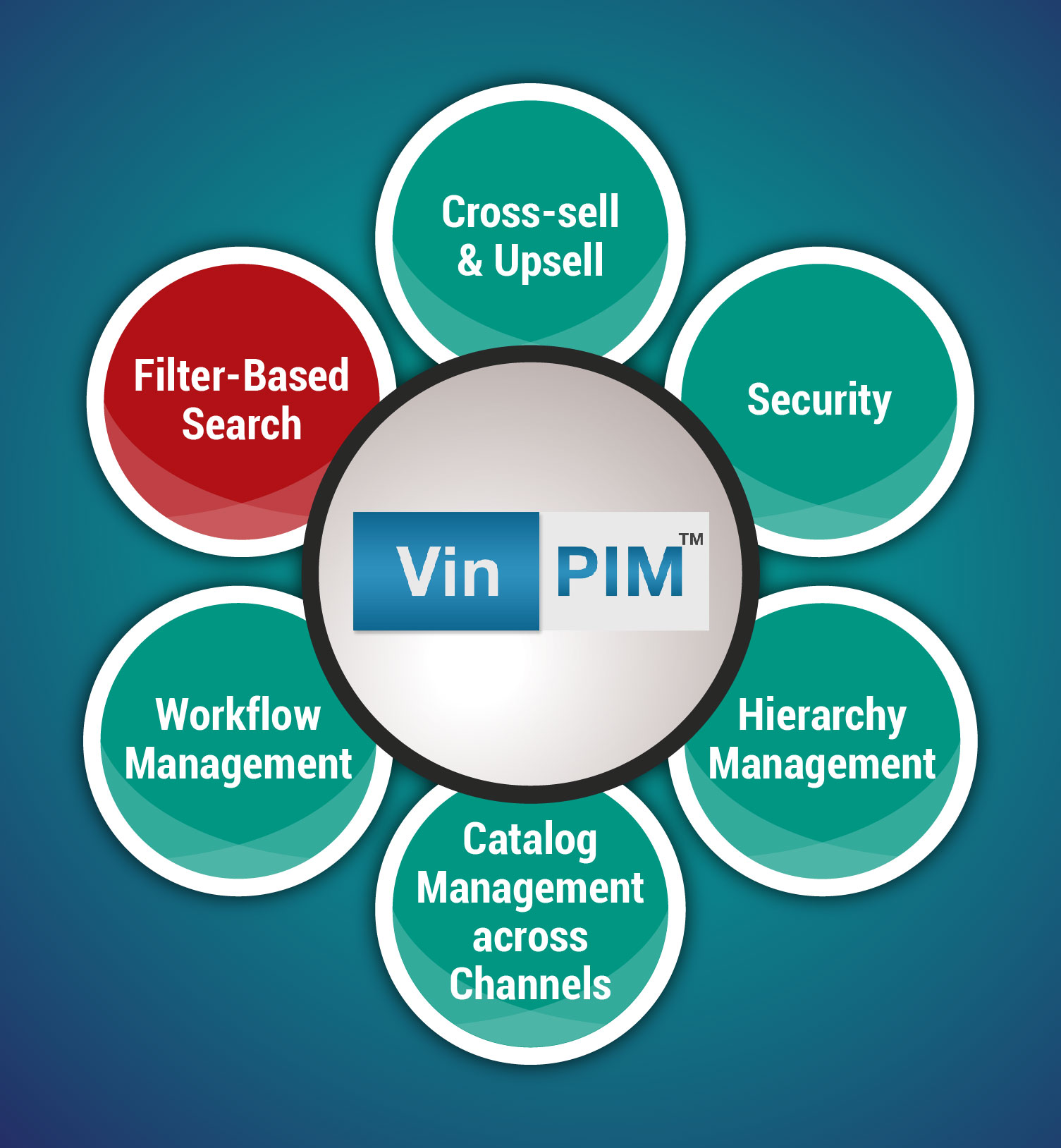 Suppose you are a women’s clothing retailer and sell various items online. In an effectively managed PIM environment, “shirt” would be the category name, “formal shirt” would be the product, and a specific size and color would classify the item. The category, product and item fields can all be used as keywords and titles. Making this information available allows businesses to improve the customer’s site navigation and overall buying experience.
Suppose you are a women’s clothing retailer and sell various items online. In an effectively managed PIM environment, “shirt” would be the category name, “formal shirt” would be the product, and a specific size and color would classify the item. The category, product and item fields can all be used as keywords and titles. Making this information available allows businesses to improve the customer’s site navigation and overall buying experience.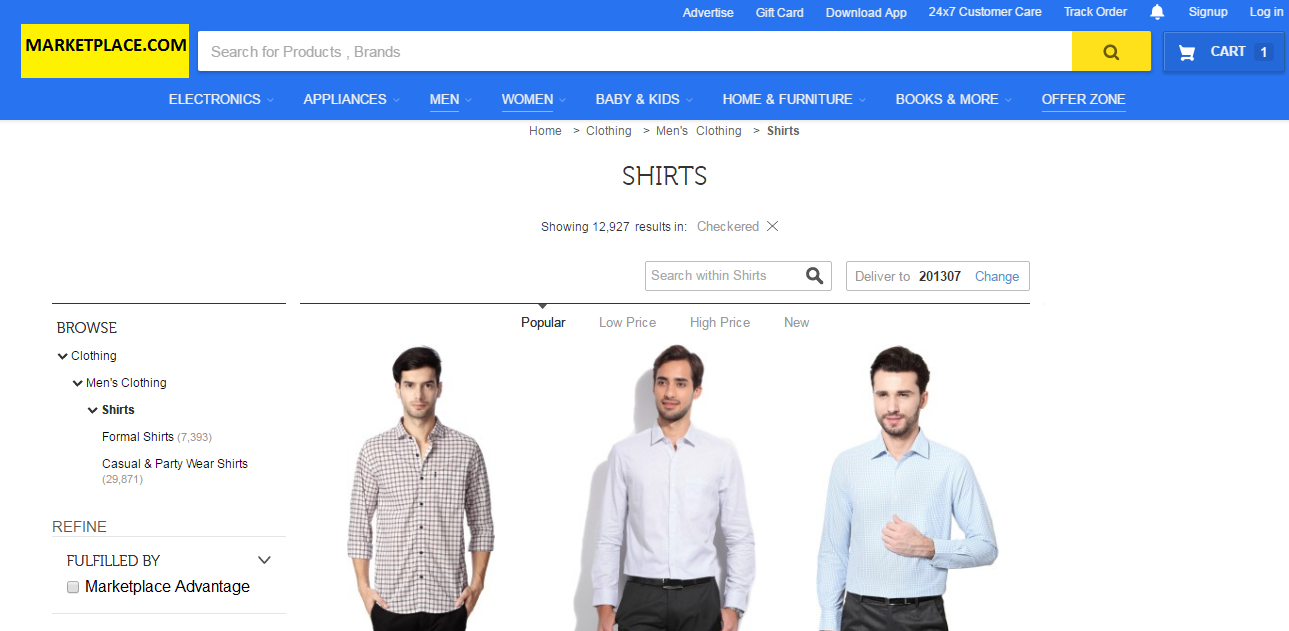
- Optimized Customer Experience: To provide a cohesive experience to customers, you need to streamline product information. In the example of the shirt, information elements such as – length, color, promotions, product recommendations, and editorial content are placed in the same place, making it easy for the customer to view and compare products. The customer sees orchestrated and related content at one place, which is relevant to him or her right now.
- Improved management of Data: The management of SKU information enables simplified filters and searches for customer order entry, purchase order entry, and efficiencies for the users managing your products. Additionally, users can locate items more quickly, report and analyze fast-moving SKU items and their details better.
PIM solutions:
- Reduce time-to-market by up to 400%
- Increase in sales from 15% to more than 50%
- Result in Up to 23% fewer product returns, and
- Result in Up to 27% fewer customer inquiries (Product Information Management, Jorij, Abraham 2014)
In conclusion, detailed product content is a clear differentiator when it comes to Customer Experience.
PIM solutions act as enablers of the high-quality, consistent product information demanded by consumers at every stage of the buying process.
See how Vinculum partnered with Ralali to manage their product information here.
Any tips or comments for us? Let us know in the section below –
Read More
